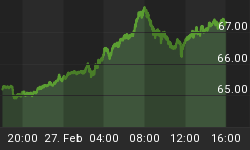Cubans aren’t as fed up with communism as one might think, despite decades of media opening to the effect that it’s a system preferred only by the ruling elite.
While drafting the country’s new constitution in July, a special commission left out the word “communism”, but they put it to a nationwide public debate afterward that lasted for three months.
According to Cuba’s state media, thousands of citizens at community-level meetings called for “communism” to be re-inserted in the constitution. So, it’s back in a draft now being debated by the national assembly.
At issue was an initial draft of the constitution that left out a clause from the 1976 version that noted the ultimate aim of building a communist society—as opposed to just focusing on socialism. If the new draft passes through the national assembly, it will go up for a referendum vote in late February.
The “communism” bit is only one of 760 changes to the first draft. They also dropped same-sex marriage language after Church cried foul.
But perhaps it will be communism light because the new draft also recognizes the very capitalistic right to private property.
The constitutional commission, led by the head of the ruling Communist Party and former President Raul Castro, has also done away with new restrictions on entrepreneurs that had been widely criticized by the public. That means that all those micro businesses that started to sprout up after economic reforms in the post-Fidel era should have an easier time of growing and attracting investment. It means a true private sector could potentially emerge.
So while Cubans have shown that they aren’t ready to give up entirely on communism, or its general ideals, they’re also not looking for a rerun of the failed state-run experiment. They welcome the burgeoning private sector.
Indeed, the number of people employed by the private sector in Cuba had grown from 157,000 in 2010, when the government expanded private business in a limited number of sectors, to 588,000 at the end of this October--about 13 percent of the working population.
Most private businesses concentrate on transport, housing rentals and the preparation of food and meals, in part to serve the more than 4 million tourists who visit Cuba every year.
However, with economic growth barely registering at 1.1 percent in the first half of 2018, the government seems increasingly interested in foreign investment.
Cuban authorities say they need up to 7 percent annual growth to fully recover from the fall of communism and the infectious spread of the crisis in Venezuela. Just to break even, they estimate they need 3 percent annual growth.
Related: Bad News Builds For Global Markets
They’re hoping this will help: In March 2014, the government implemented generous tax cuts for foreign investors, promising marked improvements in the investment climate and investment security. For now, Cuba’s investment portfolio boasts over 450 projects worth close to $11 billion, primarily centered around its emerging special economic zone, Mariel.
Just this year, Cuba managed to lure in $2 billion in investment, largely focused on tourism and energy, with China and Spain leading the charge. The U.S., while Obama played a key role in opening up this market, has not been keen to pour money into Cuba over fears that Trump could set this clock back at any time.
Indeed, in 2017, he tightened the economic embargo on Cuba, restricting US citizens from access to hotels, stores and other businesses tied to the Cuban military.
By David Craggen for Safehaven.com
More Top Reads From Safehaven.com
















